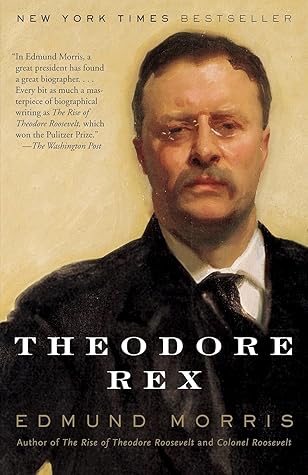More on this book
Community
Kindle Notes & Highlights
“that highest form of success which comes … to the man who does not shrink from danger, from hardship, or from bitter toil.”
It had always been thus with him: conflict between belligerence and civilized restraint, between animal brutality and human decency, between pessimism and optimism, or, as his perceptive friend Owen Wister put it, “between what he knew, and his wish not to know it.”
As Grover Cleveland remarked, “When quarreling parties are both in the wrong, and are assailed with blame … they will do strange things to save their faces.”
Speak softly and carry a big stick was a West African proverb Roosevelt had tried out once, as Vice President, and memorized as a personal mantra. Perhaps the current situation would enable him to test its effectiveness, starting with the soft speech. “If a man continually blusters, if he lacks civility, a big stick will not save him from trouble; but neither will speaking softly avail, if back of the softness there does not lie strength, power.”
“Envy and arrogance,” said Roosevelt, “are the two opposite sides of the same black crystal.”
The death-knell of the republic had rung as soon as the active power became lodged in the hands of those who sought, not to do justice to all citizens, rich and poor alike, but to stand for one special class and for its interests as opposed to the interests of others.
“The power to seize the psychological moment is the essence of genius in politics,
“I know perfectly well that the whole world is watching me, and the condemnation that will come down on me, if the conference fails, will be world-wide too. But that’s all right.”
1906, Columbia’s Simplified Spelling Board,
a canal, a coal-strike settlement, a peace treaty, a national conservation conference—


